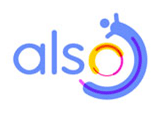Erasmus+: Adaptive Learning System (ALS)
The ALS project aims to address the needs of pupils facing difficulties adapting to traditional learning approaches.

Project Description:
Currently, in Europe, around 16% to 24% of pupils are facing difficulties adapting to traditional learning approaches. The ALS project aims to address the needs of these pupils in accessing learning by providing a tool to develop common, personalized, and inclusive learning materials.
The solution provided by the consortium will be to create a digital learning tool that allows the adaptation of content for children during early learning. This tool will be created thanks to the development of a cognitive approach to learning, and will aim at allowing children to access a personalised learning system. Strict definitions of access limitations will be deconstructed to provide learning profiles based on the cognitive behaviour and motivation of the pupils. The final result will be the possibility to adapt traditional contents with the appropriate modifications for each type of limitations.
Through these developments, research, and demonstration, ALS will test and prove the utility of a new learning tool, consolidating needs of diverse European Countries. Indeed, the project will provide profiles on the European scale, that will lead to a general cultural awareness towards the development of common policies tackling the needs of disabled pupils.
The project will have high potential of transferability, as the adaptive aspect of the tool can be implemented through a diverse range of end-users after the project end.
Project website:
Project website can be accessed here
Duration:
2014 – 2017
The Research Team:
The project team includes institutions across three European countries including Haikara (France), University of Plymouth (UK), Ecole2Demain (France), and ICEP Europe (Ireland).
Funding:
The project is funded under the Erasmus+ Strategic Partnership initiative.
Project Objectives:
- Provide pupils with disabilities a greater access to educational content by specifically adapting that content to their requirements, so they can remain in a traditional learning environment.
- To provide stakeholders, including parents and educational centres with more comprehensive and adapted tools for learning, and widen their general awareness of adaptive technologies.
- To provide educators with tools which enable them to tackle difficulties in curriculum access for pupils with special needs.
- To make technology based access tools available to adults, assisting in supporting lifelong learning requirements for this population by enabling them to adapt any working material regarding their needs to increase the efficiency at work and their integration into highly competitive companies.


